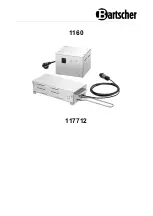
Digital Monitoring Products
521LX/521LXT Installation Sheet
2
Mounting the Detector Head
To install a detector head, simply line up the raised marking on the
side of the detector with the arrow on the mounting base. Insert
the head and rotate it clockwise approximately 15 degrees to snap
the locking tab into place. See Figure 2.
Removing the Detector Head
To remove the detector head, simply turn counterclockwise. If
the locking tab slot is removed, insert a small screw driver into
the locking tab slot on the side of the base and press in while
simultaneously turning the detector head counterclockwise as
shown in Figure 2.
Wiring
First, pull wire through electrical box, then through the mounting
base center opening. Connect the 4-wire harness to the J1 terminal
according to the wiring diagram in Figure 3.
Addressing the 521LX and LXT
Addressing requires setting two on-board rotary switches to match
the LX-Bus zone number address. Set the switches to match the
last two zone number digits. For example, on an XR500 panel,
to assign the detector to zone number 569 on LX-Bus 1, set the
left rotary switch (labeled TENS) to 6 and the right rotary switch
(labeled ONES) to 9, as shown in Figure 4. To assign to zone number
623 on LX-Bus 2, set the left rotary switch to 2 and the right rotary
switch to 3.
Testing Each Detector
All 521LX and 521LXT smoke detectors ship with a plastic dust
cover for use in areas where construction is continuous. Smoke
detectors do not work with the dust cover in place. Remove the
dust cover after installation is completed and, prior to testing. Also, disconnect alarm notification appliances,
releasing service devices, and extinguish ing systems prior to performing detector tests. Be sure to reconnect all
devices at testing conclusion.
Per NFPA 72, “all smoke detectors shall be tested in place annually, to ensure smoke entry into the sensing chamber
and alarm response. Testing with smoke or listed aerosol acceptable to the manufacturer, shall be permitted.”
Annual functional testing is best accomplished using Smoke! In a can, Model 526, available from DMP. Carefully
follow the directions on the can.
The detector performs a smoke test every nine seconds while its LED flashes. If smoke is detected, the rate of
sampling increases to every 4.5 seconds. Excessive smoke must be detected in three con secutive tests for the alarm
to sound. Therefore, when testing the detector with smoldering punks or cotton wicks, hold the smoke source near
the opening for smoke entry and gently direct smoke into the detector for 20 seconds or until an alarm is indicated.
BE SURE TO PROPERLY EXTINGUISH THE SMOKE SOURCE AF TER TESTING!
Testing the detector with Smoke! In a Can or with a smoking
punk only serves as a simple go/no go test. If the test is
successful, the LED remains lit. For in-depth sensitivity testing
see
Sensitivity Level Test Mode
.
If testing is unsuccessful, reset the detector by performing a
panel Sensor Reset. Snap off the detector cap by prying it loose
with a screwdriver placed in the slot in the base of the cap as
shown in Figure 5. Release the tabs on each side of the optical
chamber to remove the chamber. Then, blow or brush off the
optical block base and snap a new optical block chamber in
place, replace the cap and verify sensitivity with the Sensitivity
Level Test.
Figure 2: Installing the
521LX/521LXT on the Base
Locking Tab
Figure 3: 521LX/LXT Wiring
TXD
J1
0 1
2
3
4
5
6
7
8
9
0 1
2
3
4
5
6
7
8
9
Tens
Ones
LX-Bus™
May Require an
Interface Card
Bottom View
Black (common)
Green (data)
Yellow (data)
Red (Smoke power)
J7
J4
Figure 4: Address switches
0 1
2
3
4
5
6
7
8
9
TENS
S2
0 1
2
3
4
5
6
7
8
9
ONES
S1
Example:
Module rotary
switches set for
zone address 569
Figure 5: 521LX/521LXT Optical Sensing Chamber
SQUEEZE
HERE
Model 525
Optical Block
Cover
Slot
Optical
Bae
Detector
Cap
Snap into
indentation
Indentation






















